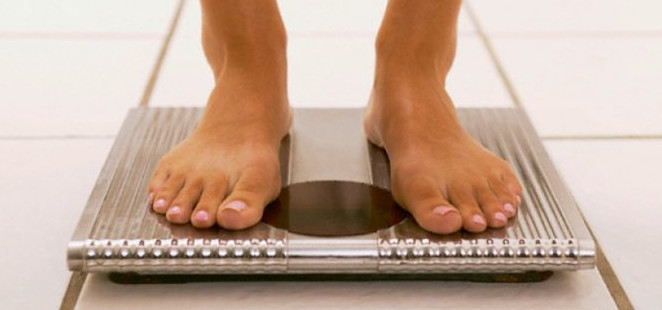
Anxiety can do more than send your heart racing and interfere with your ability to get things done. Anxiety can prevent weight loss and encourage weight gain. How can this be? The “stress hormone” cortisol.
Many people think of stress and anxiety as interchangeable terms for the same condition, but they are quite different. Stress is a reaction to specific stressors in your life – work, family and general life pressures; anxiety does not always have a specific stress-related cause. Stressors can indeed trigger anxiety and lead to panic attacks, but anxiety can also have solely physiological or psychological factors. This is why anxiety is considered a legitimate mental disorder while stress is not.
Cortisol and Anxiety
Cortisol is produced by the adrenal gland in response to anxiety, stress, and fear, as well as low blood glucose levels. Cortisol is necessary for good health and even survival, but too much can cause problems. Anxiety triggers significantly greater cortisol production than stress alone and cortisol can also exacerbate anxiety, making anxiety harder to control.

How Anxiety, via Cortisol, Increases Weight Gain and Prevents Weight Loss
Studies have shown that cortisol’s effect on weight has three major factors: increased hunger (and cravings for fat and sugar), sleep deprivation, and hormone imbalance. And all three are connected, as you shall see.
Increased Hunger, Craving Fattening Foods
Cortisol can increase hunger to ravenous levels during tension-filled times. And, to make matters worse, increased levels of cortisol also raises insulin levels and decreases blood sugar. This combination has been shown to cause cravings for sugary, fatty foods. Over time, this anxiety-induced overeating can become a habit that’s difficult to break.
“Most of us become overeaters when we’re feeling a lot of pressure. This happens thanks to your fight-or-flight response, a.k.a. survival mode – once your body reaches a certain stress level, it does what it feels it needs to. In most cases, that means overeat. Why? Because your body thinks you’ve used calories to deal with your stress, even though you haven’t, says Pamela Peeke, MD, an assistant professor of medicine at the University of Maryland. As a result, it thinks you need to replenish those calories, even though you don’t.”1
In addition, sugary, fatty foods are proving to be addictive all by themselves. An article published in the Journal of Nutrition offered neurochemical evidence of sugar dependence and explained why it was possible. I’ve included a small portion below.
“Ingestion of different nutrients, such as fats and sugars, normally produces different effects on physiology, the brain, and behavior. However, they do share certain neural pathways for reinforcement of behavior, including the mesolimbic dopamine (DA) system. When these nutrients are consumed in the form of binges, this can release excessive DA, which causes compensatory changes that are comparable to the effects of drugs of abuse. … One of the strongest neurochemical commonalities between sugar bingeing and drugs of abuse is their effect on extracellular DA. A hallmark of drugs that are abused is repeated increase in extracellular DA, whereas during normal feeding, the DA response fades out after repeated exposure to a food. … Withdrawal from drugs such as morphine, nicotine, and alcohol is often accompanied by alterations in DA/ACh balance in the NAc: specifically, DA decreases while ACh increases. Rats bingeing on sugar also show this neurochemical imbalance in DA/ACh during withdrawal.”2
Sleep Deprivation / Insomnia
Scientists determined many years ago that not getting enough sleep could cause weight gain and prevent weight loss – regardless of calorie consumption. But now it has been discovered that high cortisol levels can prevent us from sleeping.
To make a long story short, one of the reasons anxiety (and fear) keeps us awake and heightens our senses is because of cortisol. Without this little quirk of nature, we (and especially our ancient ancestors) would have been far more vulnerable to predators.
Imagine being hunted by a tiger; you know you are in grave danger and every sense you have is telling you to run and hide. What use would those heightened senses be if you became drowsy and fell asleep while attempting to escape certain death? None. And that is precisely why anxiety keeps you awake via cortisol. Click the following link if you want to learn more about the science of the HPA Axis and how it activates our hormones to help us survive dangerous situations.
Now, you may be wondering HOW sleep loss affects our weight. Based on the ever growing body of research, sleep deprivation causes humans to gain and maintain body fat by making us too tired to work out, making us hungrier and clinging to calories consumed as if they were the last lifeboat on the Titanic. Sleep deprivation also negatively affects our hormone balance.
It’s been acknowledged for many years now that one of the symptoms of sleep apnea (and other sleep disorders) is inexplicable weight gain. The National Sleep Foundation interviewed medical doctors about sleep apnea patients and discovered that most of these patients were obese.
“A lack of sleep can do more damage than just leaving you feeling tired and not wanting to exercise. Many important functions take place in your body while you sleep that help you maintain a healthy immune system and balance your appetite. While you sleep, hormone levels that play a role in how hungry or full you feel are regulated. Without necessary rest, these levels can be disrupted, making you feel like you need to eat more – leading to weight gain.”3

Hormone Imbalance
At this point in time, mainstream medicine has acknowledged that hormone imbalances can affect our weight. And cortisol is only one of the hormones that can cause obesity. That being said, a few audacious doctors have stumbled upon natural, at-home solutions that have worked for many of their patients and shared them with the public. One of those doctors is Sara Gottfried, MD. She wrote a book on the topic called The Hormone Reset Diet: Balance Your Hormones and Lose up to 15 pounds in just 3 weeks!
Just as cortisol induced alertness prevented our ancestors from sleeping when they were anxious or afraid, cortisol causes our bodies to store fat in times of stress to help protect against starvation when food was scarce. Dr. Gottfried’s book discusses all the hormonal causes and solutions for overcoming them. Following is an excerpt from her book:
“Here’s a mind-bender: Being overweight often has nothing to do with calories or exercise. For a huge number of us, the problem is instead about misfiring hormones. Research is still catching up with this paradigm shift, which has yet to be comprehensively studied. But seeing how this revelation has helped my patients (and me) slim down and feel better gives me confidence that it’s true for most women who are trying to lose weight and can’t. … The so-called stress hormone cortisol can create all kinds of trouble for women who want to shed weight. When cortisol rises, it encourages the conversion of blood sugar into fat for long-term storage. Hoarding body fat in this way was a useful survival adaptation for our ancestors when they faced stressful famines. Not so much today. Obviously, reducing stress in your life will help rein in this fat-storing hormone, but there’s another very common source of the problem: daily coffee, which elevates cortisol dramatically, causing your body to hoard fat when you least need to.”4
If you’ve used the advice in Dr. Gottfried’s book to overcome hormone-induced weight gain, please, feel free to share your experience with us. You can email me directly or post a detailed comment below.
Is Anxiety Making You Fat?
If you suffer from anxiety and you are overweight, despite putting in the necessary effort – monitoring your food/calorie intake and exercising, the answer may be yes. If so, treating your anxiety is a must for successful weight loss. Your anxiety could be the result of dietary factors, daily stressors, or be psychological in nature. Regardless of the cause, the medical community has accepted anxiety as a very real health issue and there are treatment protocols in place to assist you in recovery.
However, if you prefer a natural approach, subscribe to our blog for post updates. I plan to write at least one follow-up article on that very subject in the near future.
References
1 Breeze, Jarrod. “Can Stress Cause Weight Gain?” WebMD, n.d. Web. July 2017
2 NM Avena, P Rada, and BG Hoebel.”Sugar and Fat Bingeing Have Notable Differences in Addictive-like Behavior”. The Journal of Nutrition, March 2009. Web. July 2017
3 “Why does sleep apnea cause weight gain?” ResMed, April 17, 2013. Web. July 2017
4 Gottfried, Sara, MD. “How to Turn Off Your Weight Gain Hormones”. Prevention, May 21, 2015. Web. July 2017
Groberman, Alex. “Difference Between Stress and Anxiety”. Psyweb.com, January 13, 2017. Web. July 2017
EJ Lenze, MD, RC Mantella, Ph.D., P Shi, MS, AM Goate, Ph.D., et al. “Elevated Cortisol in Older Adults with Generalized Anxiety Disorder is Reduced by Treatment: a placebo-controlled evaluation of escitalopram.” American Journal of Geriatric Psychology, May 2011. Web. July 2017
Dr. Doni. “How Cortisol Affects Your Sleep”. Dr. Doni, December 11, 2014. Web. July 2017
Reed, Martin. “High Cortisol May be Causing Your Insomnia”. Health Central, April 13, 2015. Web. July 2017
YHC Yau and MN Potenza. “Stress and Eating Behaviors”. Minerva Endocrinologica, September 2013. Web. July 2017
B. Bush, ND, and T. Hudson, ND. “The Role of Cortisol in Sleep”. Natural Medicine Journal, June 2010 vol. 2 issue 6. Web. July 2017


[…] stress can lead to anxiety and depression, especially if you are in large amounts of debt, to begin with. These feelings can get worse if the […]